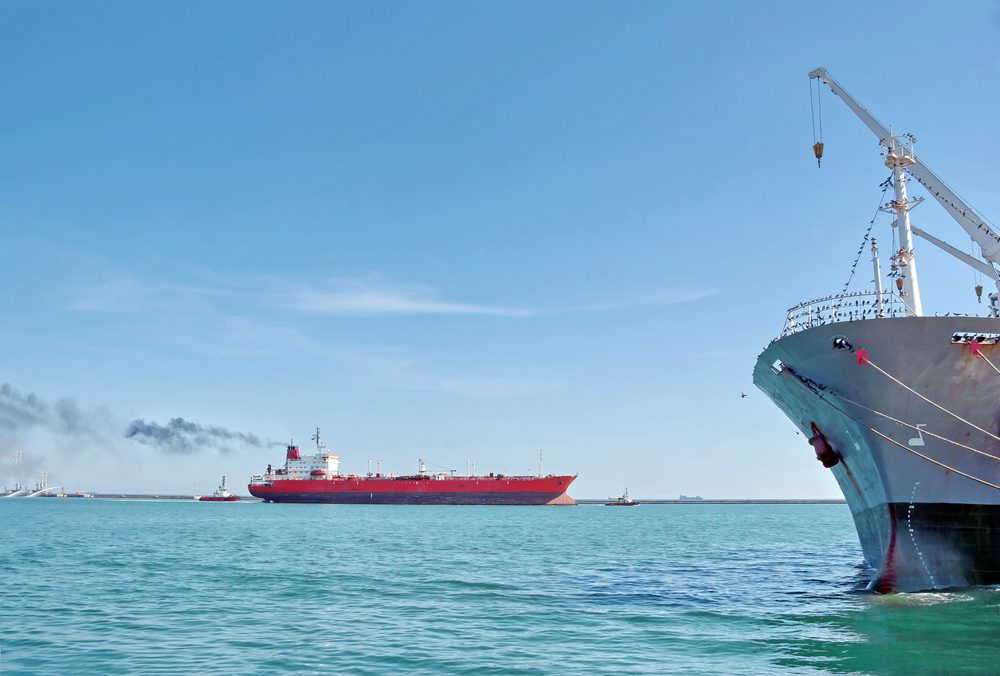U.S. Customs Revenue Tops $100 Billion for First Time Amid Tariff Surge
US revenue from customs duties this fiscal year surpassed $100 billion for the first time, reflecting higher tariffs imposed by the Trump administration.

IMO member states seem on track to adopt a more stringent greenhouse gas reduction target that would align shipping with the Paris Agreement on climate change.
At the conclusion of a greenhouse gas working group at the International Maritime Organization ahead of next week’s critical Maritime Environmental Protection Committee meeting, known as MEPC79, taking place at IMO headquarters in London, International Chamber of Shipping Secretary General Guy Platten said with this new target in sight, the hard work starts now.
So far, the IMO has only set an initial target of reducing greenhouse gas emissions from ships by 50% by 2050, compared to a 2008 baseline. But pressure has been building to increase the target to net zero emissions by 2050, which would align the industry with the Paris Agreement goal of keeping global warming to no more than 1.5°C compared to pre-industrial levels when the IMO finalizes its climate change strategy during MEPC 80 in Summer 2023.
Considering the maritime shipping industry is responsible for almost 3% of global CO2 emissions, its climate strategy is seen as critical to achieving any global goals.
“At [last year’s UN climate change conference] COP26, global shipowners reiterated their commitment to reaching net-zero carbon emissions by 2050. IMO Secretary-General Kitack Lim’s closing remarks in Glasgow were: ‘We hear you.,’” Platten said this week, speaking at the the conclusion of the GHG working group.
“We welcome signals that IMO member states now seem to be on track to adopt a similar target for international shipping, as well as a goal for 5% of the energy used by shipping to be produced from alternative fuels by 2030. But the hard work starts now.”
Platten continued: “Many submissions on the table at the IMO include ambitious but pragmatic decarbonisation solutions, including ICS’s recent ‘Fund and Reward’ proposal. Government representatives at the MEPC must resist the urge to find fault, and instead find cohesion, to move these proposals forward. The increasing impacts of climate change will not wait.
“Zero-carbon fuels must be available in significant quantities no later than 2030 if we’re to have any hope of hitting a 2050 target. Encouragingly, consensus is growing. Proposals show a groundswell of support for a flat rate contribution per tonne of CO2 emitted by ships on a global basis, to accelerate the production and uptake of these fuels.
“The EU 27 have signalled acceptance of this approach rather than pursuing carbon trading on a global basis, and we hope next week will advance these complex negotiations further.
“We urgently need to reduce the political and investment risk. We can never forget that to decarbonise the world, you need shipping,” Platten said.
With only two meetings to go until the MEPC finalizes the shipping industry’s climate change strategy, all eyes will be on the IMO next week.

Sign up for gCaptain’s newsletter and never miss an update

Subscribe to gCaptain Daily and stay informed with the latest global maritime and offshore news


Stay informed with the latest maritime and offshore news, delivered daily straight to your inbox
Essential news coupled with the finest maritime content sourced from across the globe.
Sign Up